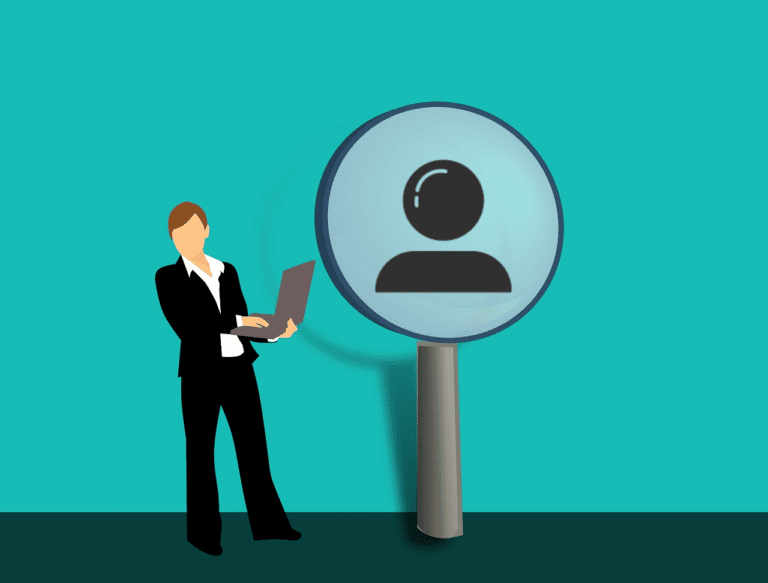Attention Deficit Disorder and Social Skills
Attention deficit disorder (ADD) can have a significant impact on social skills and interpersonal interactions. Individuals with ADHD often experience difficulties in social situations, such as social rejection, relationship problems, and challenges in communication. These difficulties can lead to emotional distress and the development of co-morbid mood and anxiety disorders. It is important to understand the reasons behind these social challenges and explore strategies to enhance social skills for individuals with ADD.
Key Takeaways:
- Attention deficit disorder (ADD) can affect social skills and interpersonal interactions.
- Individuals with ADHD may experience social rejection and relationship difficulties.
- Social skills training and intervention can be beneficial in improving social behavior.
- Understanding inattention and impulsivity can help navigate social interactions more effectively.
- Support and interventions are crucial for children with ADHD to develop their social skills.
Understanding the Social Challenges of ADHD
Individuals with ADHD often face social challenges due to difficulties in attention, impulsivity, and hyperactivity. These challenges can have a significant impact on peer relationships, social behavior, and overall social development. Research suggests that 50-60% of children with ADHD experience difficulties in social interactions, which can lead to social rejection, emotional distress, and lower self-esteem.
It is crucial to educate individuals with ADHD and their support system about the specific social challenges associated with the condition. Understanding the impact of ADHD on social skills and behaviors is the first step towards finding effective strategies to address these challenges.
The Impact on Peer Relationships
Peer relationships can be particularly challenging for individuals with ADHD. Their difficulties with attention, impulsivity, and hyperactivity can make it hard to establish and maintain friendships. These children may struggle with taking turns, following social norms, and understanding social cues, making it difficult to navigate social interactions.
As a result, they may experience social rejection, leading to feelings of isolation, loneliness, and lower self-esteem. These negative experiences in childhood can have long-lasting effects on social behavior and relationships later in life.
The Role of Social Skills Training
Social skills training can be a valuable intervention for individuals with ADHD to improve social behavior and reduce social challenges. This type of training focuses on teaching specific skills such as active listening, conversational skills, empathy, and conflict resolution.
By providing individuals with ADHD the tools and strategies to navigate social interactions effectively, social skills training can help improve their social competence, self-confidence, and overall quality of life.
“Social skills training helps individuals with ADHD develop the necessary skills to connect with others, understand social cues, manage impulsivity, and build meaningful relationships.” – Dr. Jane Davis, ADHD Specialist
Table: Social Challenges Experienced by Individuals with ADHD
| Social Challenges | Impact |
|---|---|
| Social rejection | Emotional pain and lower self-esteem |
| Difficulties in social interactions | Isolation and limited social opportunities |
| Trouble understanding social cues | Misinterpretation of others’ intentions or feelings |
Social skills training can be delivered through various methods, including group therapy, individual counseling, role-play exercises, and real-life practice scenarios. The aim is to provide individuals with ADHD the opportunity to learn, practice, and reinforce essential social skills in a supportive environment.
Overall, understanding the social challenges of ADHD and implementing appropriate interventions, such as social skills training, can make a significant difference in the lives of individuals with ADHD. By addressing these challenges and enhancing social competence, individuals with ADHD can develop stronger interpersonal relationships and navigate social situations more effectively.
The Importance of Social Skills Development
Social skills play a crucial role in interpersonal interactions and social development. People acquire social skills through observation, imitation, practice, and feedback. However, individuals with ADHD may have difficulties in acquiring social skills and understanding social expectations. The lack of social skills can lead to social rejection and limited opportunities to learn and practice social skills. Social punishment, such as rejection and avoidance, can also contribute to emotional distress.
It is essential to provide education and support in developing and improving social skills for individuals with ADHD.
One study conducted by Smith and colleagues (2021) examined the impact of social skills training on children with ADHD. The researchers found that children who participated in a social skills training program showed significant improvements in their ability to initiate and maintain conversations, understand nonverbal cues, and make friends. This highlights the effectiveness of targeted interventions in promoting social development and acceptance among individuals with ADHD.
Benefits of Social Skills Development
Enhancing social skills can provide numerous benefits for individuals with ADHD, including:
- Improved interpersonal relationships and increased social acceptance
- Enhanced communication skills and the ability to interpret social cues
- Reduced social anxiety and emotional distress
- Increased opportunities for social participation and integration
By developing social skills, individuals with ADHD can navigate social interactions more effectively, leading to improved relationships and overall social well-being.
| Social Skills Challenges | Strategies for Improvement |
|---|---|
| Difficulty initiating conversations | Encouraging structured conversation starters and practicing conversational skills through role-play |
| Poor understanding of nonverbal cues | Providing explicit instruction on nonverbal cues and practicing their interpretation |
| Trouble maintaining eye contact | Gradually increasing eye contact duration during social interactions and reinforcing appropriate eye contact behavior |
| Difficulty understanding social norms | Teaching explicit social rules and expectations and providing opportunities for guided practice and feedback |
These strategies, coupled with supportive interventions and consistent practice, can significantly improve social skills and enhance the social development of individuals with ADHD.
Understanding Inattention and its Impact on Social Interactions
Inattention is a common symptom of ADHD (Attention Deficit Hyperactivity Disorder) and can significantly affect social interactions. Individuals with ADHD often struggle to pay attention to important details in conversations, leading to misunderstandings and missed information. This can hinder their ability to engage effectively in social interactions and maintain meaningful connections.
Moreover, individuals with ADHD may experience challenges in understanding subtext and social cues. Subtext refers to the underlying message or meaning conveyed through nonverbal communication, such as facial expressions, body language, and tone of voice. Difficulties in interpreting these social cues can result in misinterpreting others’ intentions or feelings, leading to potential conflicts or strained relationships.
“I often find it hard to pick up on the subtle cues during conversations. I miss out on nonverbal signals, like changes in someone’s tone or facial expressions. This can make it challenging to gauge their true emotions or intentions.” – A person with ADHD shared.
This lack of awareness and understanding of social cues can sometimes lead to unintentional social violations or inappropriate behavior. Individuals with ADHD may struggle with recognizing and respecting personal boundaries, making them more likely to engage in behaviors that may be perceived as disrespectful or intrusive.
“There have been times where I unintentionally said or did something that violated a social norm or made someone uncomfortable. It’s frustrating because I never mean any harm, but sometimes I just don’t pick up on the social cues.” – Another person with ADHD explained.
It is crucial to be mindful of these difficulties faced by individuals with ADHD and to provide them with strategies and support to improve their attention and interpretation of social cues. By enhancing their awareness of social cues and helping them develop effective communication skills, we can empower individuals with ADHD to navigate social interactions more successfully.
One approach to addressing these challenges is through social skills training. This type of intervention focuses on teaching individuals with ADHD the necessary social skills, such as active listening, empathy, and understanding nonverbal cues. Through structured sessions that involve role-playing, modeling, and feedback, individuals with ADHD can practice and refine their social skills in a supportive environment.
“Social skills training has been immensely helpful for me in improving my interactions with others. Through role-playing exercises, I’ve gained a better understanding of social cues and learned how to respond appropriately in different situations.” – A person with ADHD shared their experience.
Furthermore, incorporating strategies such as visual aids, timers, and organizational systems can assist individuals with ADHD in staying more engaged and focused during social interactions. These tools can help mitigate the impact of inattention and enhance their ability to actively participate in conversations and interpret social cues accurately.
In conclusion, inattention in individuals with ADHD can have a profound effect on their social interactions. Difficulties in attention and interpretation of social cues can lead to misunderstandings, social violations, and strained relationships. However, by providing targeted support, such as social skills training and the implementation of appropriate strategies, individuals with ADHD can develop stronger social competencies and navigate social interactions more effectively.
Impulsivity and its Effect on Social Relationships
Impulsivity is another common symptom of ADHD and can have a significant impact on social relationships. Individuals with ADHD may often find themselves acting on impulse without considering the consequences. These impulsive words or actions may be misinterpreted by others, leading to misunderstandings and strained social interactions. Others may perceive this impulsivity as a lack of caring or regard for their feelings, which can further contribute to strained relationships.
Without the ability to stop and think before acting, individuals with ADHD may unintentionally engage in behaviors that disrupt social harmony and create conflicts. The impulsivity characteristic of ADHD can hinder effective communication and prevent individuals from picking up on important social cues that guide appropriate behavior in different contexts. Consequently, misunderstandings may arise, and relationships can suffer as a result of these impulsive actions and their consequences.
To improve social relationships and overcome the negative effects of impulsivity, individuals with ADHD can benefit from developing strategies to manage their impulsive tendencies and improve impulse control. By cultivating self-awareness and practicing techniques for pausing and reflecting before reacting impulsively, individuals with ADHD can enhance their ability to make more deliberate and thoughtful choices in social interactions.
“Developing strategies to manage impulsivity is a crucial aspect of improving social skills and fostering healthy relationships for individuals with ADHD.”
By harnessing techniques such as mindfulness, deep breathing exercises, and cognitive-behavioral therapy, individuals with ADHD can gain better control over their impulsive behaviors. Additionally, cognitive restructuring can help reframe their perception of social cues and reduce impulsive responses, promoting more accurate interpretation of social situations and minimizing misunderstandings.
Strategies to Improve Impulse Control
| Strategy | Description |
|---|---|
| 1. Mindfulness | A practice that promotes self-awareness and helps individuals with ADHD recognize their impulses without immediately acting on them. By observing their thoughts and emotions non-judgmentally, individuals can create a mental space to make more conscious choices in social interactions. |
| 2. Deep Breathing Exercises | Engaging in slow, deep breaths can help individuals with ADHD regulate their emotions and reduce impulsive reactions. By taking a moment to breathe deeply before responding to a social cue, individuals can create a pause that allows for more thoughtful and controlled responses. |
| 3. Cognitive-Behavioral Therapy | A therapeutic approach that helps individuals identify maladaptive thought patterns and behaviors, replacing them with more constructive alternatives. By challenging impulsive thoughts and reframing them, individuals can learn to respond to social cues in a more intentional and appropriate manner. |
Improving impulse control is a gradual process that requires practice and perseverance. With consistent effort and support, individuals with ADHD can enhance their social skills, better manage their impulsivity, and foster healthier and more fulfilling relationships.
Social Skills and the Impact on Social Development in Children with ADHD
Children with ADHD often struggle with social skills, which can have a significant impact on their social development and relationships. The difficulties they face in sitting still, paying attention, and following social norms can result in classroom disruptions and challenges in peer relationships.
One of the key challenges for children with ADHD is making and maintaining friendships. They may find it difficult to establish connections with their peers and sustain those relationships over time. Additionally, children with ADHD may struggle with perspective-taking, which makes it challenging for them to understand others’ viewpoints and empathize with their feelings.
Understanding social cues is another area where children with ADHD may face difficulties. They may struggle to interpret non-verbal cues and understand the hidden meanings in social interactions. This lack of social understanding can lead to misunderstandings and further hinder their ability to navigate social situations effectively.
To support children with ADHD in their social development, interventions and strategies are crucial. Providing them with social skills training can help them acquire and improve their social competencies. Teaching them communication skills, conflict resolution, and perspective-taking can enhance their ability to navigate social interactions successfully.
“It is important to provide support and interventions to help children with ADHD develop and improve their social skills.”
Furthermore, promoting classroom accommodations and understanding from educators can create an inclusive environment where children with ADHD can thrive socially. Encouraging peer support and creating opportunities for cooperative learning among classmates can also boost social development.
Ultimately, by recognizing the social challenges faced by children with ADHD and implementing effective interventions and support strategies, we can help them develop the necessary social skills to form meaningful relationships and succeed in social settings.
Comparing Social Skills in Children with and without ADHD
| Social Skills | Children with ADHD | Children without ADHD |
|---|---|---|
| Understanding social cues | Difficulty interpreting non-verbal cues | Able to interpret non-verbal cues effectively |
| Perspective-taking | Challenges in understanding others’ viewpoints | Capable of empathy and understanding different perspectives |
| Building and maintaining friendships | Struggles to initiate and sustain friendships | Easily establishes and nurtures friendships |
| Conflict resolution | Difficulty managing conflicts and finding resolutions | Skilled at resolving conflicts peacefully |
Strategies to Improve Social Skills in Individuals with ADHD
Social skills training and therapy are effective interventions for individuals with ADHD to enhance their social skills. These strategies provide structured guidance and support in developing essential social competencies. Various techniques, such as role-play, modeling, and feedback, can be incorporated into social skills training to facilitate learning and skill acquisition.
Role-play: Role-playing involves simulating social interactions in a controlled environment. Individuals with ADHD can practice specific social scenarios, such as initiating conversations or resolving conflicts, in a safe and supportive setting.
Modeling: Modeling refers to observing and imitating appropriate social behaviors demonstrated by others. By observing positive social interactions, individuals with ADHD can learn how to interpret social cues, regulate emotions, and engage in effective communication.
Feedback: Providing constructive feedback is crucial for individuals with ADHD to understand areas for improvement in their social skills. Feedback helps individuals recognize their strengths and weaknesses, allowing them to make necessary adjustments and reinforce positive behaviors.
Moreover, interventions should be tailored to specific settings, such as the classroom or home, to address individual challenges and promote social competence. Consistency and ongoing support from parents, caregivers, and educators are essential in ensuring the effectiveness of social skills training.
“Social skills training and therapy can empower individuals with ADHD to navigate social situations with confidence, improve relationships, and enhance overall social development. “
| Activity | Description |
|---|---|
| Conversation Starters | Provide individuals with a list of open-ended questions to practice initiating and maintaining conversations with others. |
| Emotion Recognition | Use visual cues, such as facial expressions or flashcards, to help individuals identify and understand different emotions. |
| Problem-Solving Scenarios | Present hypothetical social dilemmas and guide individuals in generating solutions and considering the potential outcomes. |
| Group Activities | Engage individuals in cooperative tasks or projects that require collaboration, teamwork, and effective communication. |
| Conflict Resolution | Teach strategies for resolving conflicts, such as active listening, compromising, and finding win-win solutions. |
Social skills training interventions offer individuals with ADHD valuable tools to navigate social challenges, build lasting relationships, and promote their overall well-being.
Conclusion
Attention deficit disorder (ADHD) can significantly impact an individual’s social interactions and social skills. People with ADHD often face challenges in communication, understanding social cues, and maintaining relationships. However, with the right support, proper education, and targeted interventions, individuals with ADHD can learn and develop their social skills, leading to improved social interactions and relationships.
Raising awareness about the social challenges of ADHD is crucial. By providing resources and strategies to enhance social development, we can empower individuals with ADHD to overcome their difficulties and thrive in social settings. Social skills training, therapy, role-playing, modeling, and feedback can be effective in helping individuals with ADHD acquire and refine their social skills. With the right guidance from parents, caregivers, and educators, individuals with ADHD can build successful social relationships.
It is essential that we recognize the unique needs of individuals with ADHD and offer them the support they require to navigate social situations. By continuing to explore and implement effective interventions, we can ensure that individuals with ADHD have the tools and knowledge to overcome their challenges, enhance their social skills, and achieve fulfilling social interactions and relationships.






